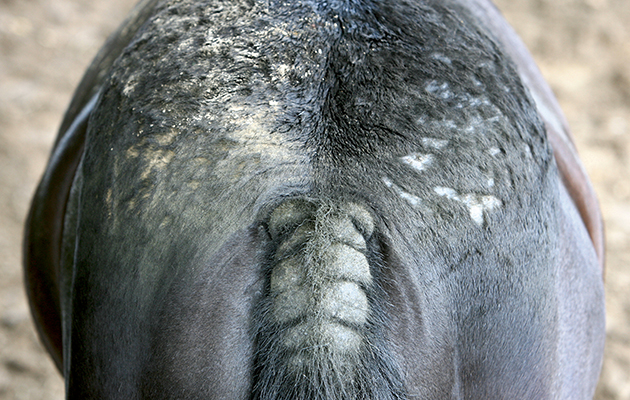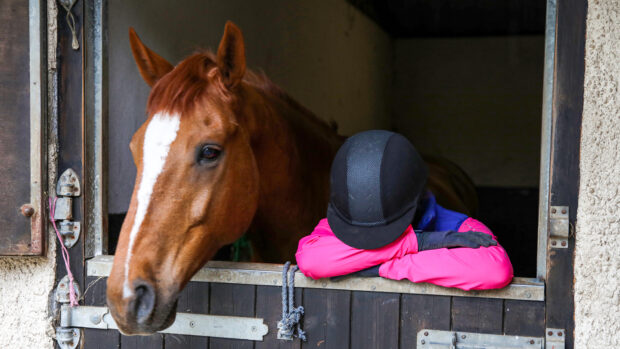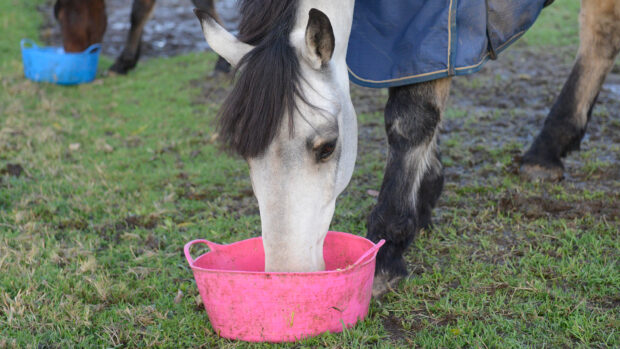Spillers’ equine nutritionist Clare Barfoot provides one H&H forum user with some helpful advice on how to feed to help manage sweet itch
Q: Sweet itch: “Our pony does not have sweet itch at the moment but I believe he’s had it in the past and it is well managed with keeping him in at night, and putting a fly mesh on him during the summer. I’m just wondering whether foods could affect him in any way? Could sugars irritate his skin, for example, sugar beet, and what about protein in haylage?”
A: Contrary to the name, ‘sweet itch’ has nothing to do with sugar or for that matter, dietary protein. It is an allergic reaction to the antigens present in the saliva of the biting female midge, particularly the Cullicoides.
Sweet itch can be a very distressing condition, however with careful management a less itchy summer can be achieved!
Continued below…
Related articles:
- H&H forum: find out what H&H readers suggested
- Sweet itch: signs, treatment and prevention
- 10 ways to beat sweet itch this summer
Daily management should aim to limit the number of midges that can have access to the skin. Environment can play a big part in this; midges like damp ground, open water, lush vegetation and still air so opting for an open, breezy field on well-drained soil away from ponds and streams will make a big difference. Using sweet itch rugs, fly repellents, stabling at dusk and dawn and even installing ceiling fans in stables have all been shown to reduce the effects of sweet itch.
Alongside careful management, there are some specific ingredients that might help.
Firstly, having a balanced diet is key to general health, but also skin health which is ultimately the body’s first barrier of defence. If you horse or pony, like many in the summer months, doesn’t require the recommended amount of compound feed, a balancer is ideal for providing vitamins and minerals without unwanted calories; SPILLERS Daily Balancer is ideal in this situation.
The next nutritional strategy you can deploy is feeding aromatic ingredients to help provide a deterrent to the midges by omitting their strong aroma through the sweat glands. One of the most traditional ingredients used for this purpose is garlic.
Feeding ingredients that support general skin health and the immune system might help ‘dampen’ down the allergic response that causes the intense itchiness. Look out for supplements that contain some or all of the following ingredients: omega 3 fatty acids, particularly from linseed oil; MSM, which may have anti-inflammatory properties and will help support general skin health; niacin, a B vitamin that may help protect the barrier function of the skin; biotin, another important vitamin in hoof and skin health; antioxidants both from key nutrients such as vitamin E and C, zinc and selenium and from plant-derived natural antioxidants. Lastly, there are some traditional herbs that have been used for centuries to promote skin health which include clivers, nettles and chamomile.
Hopefully if you deploy all these management strategies your horse will be well on the way to an itch-free summer!
For more information on body condition scoring and managing weight call the SPILLERS Care-Line on 01908 226626.




